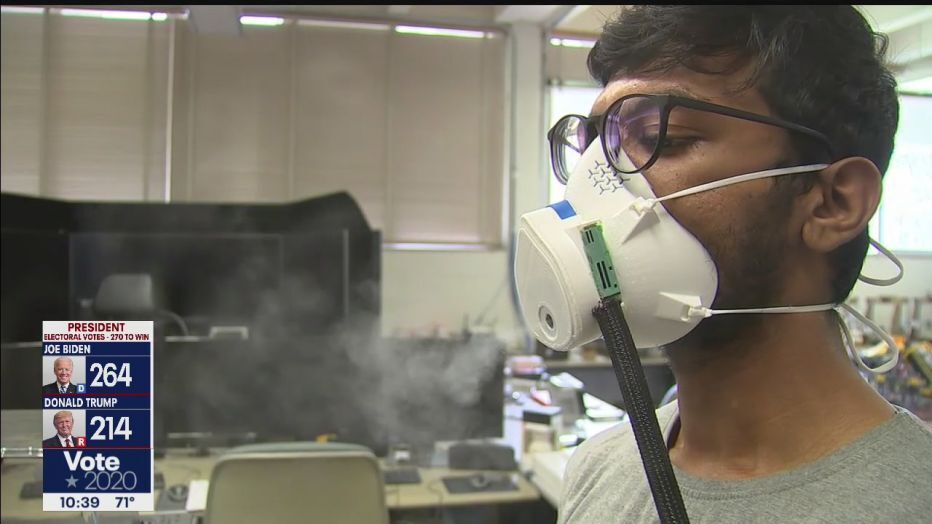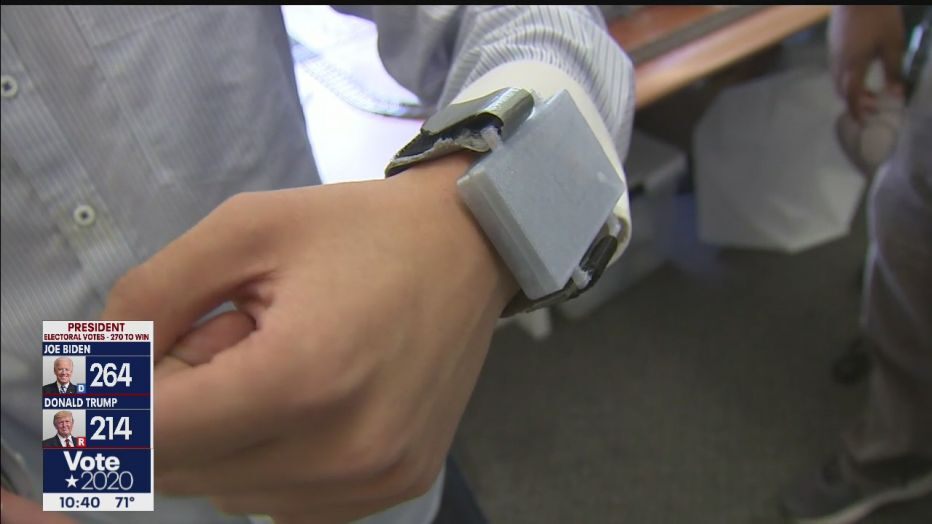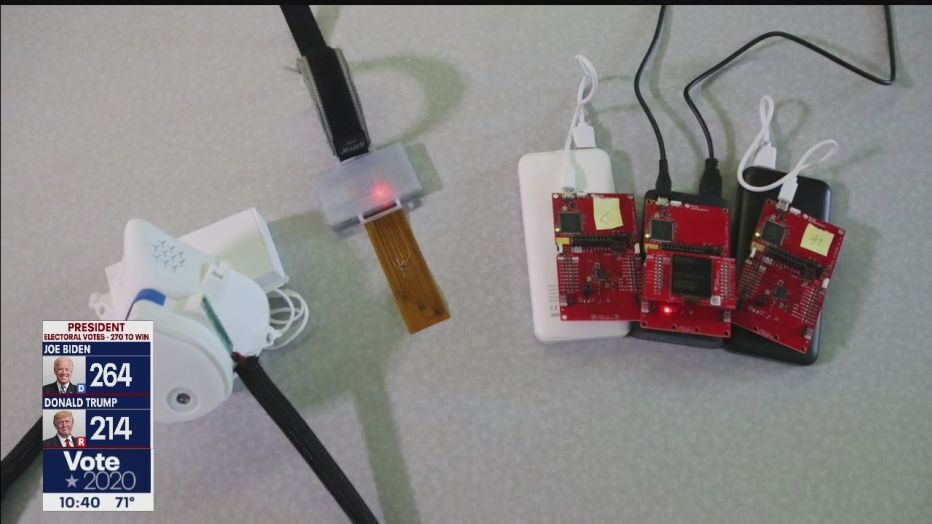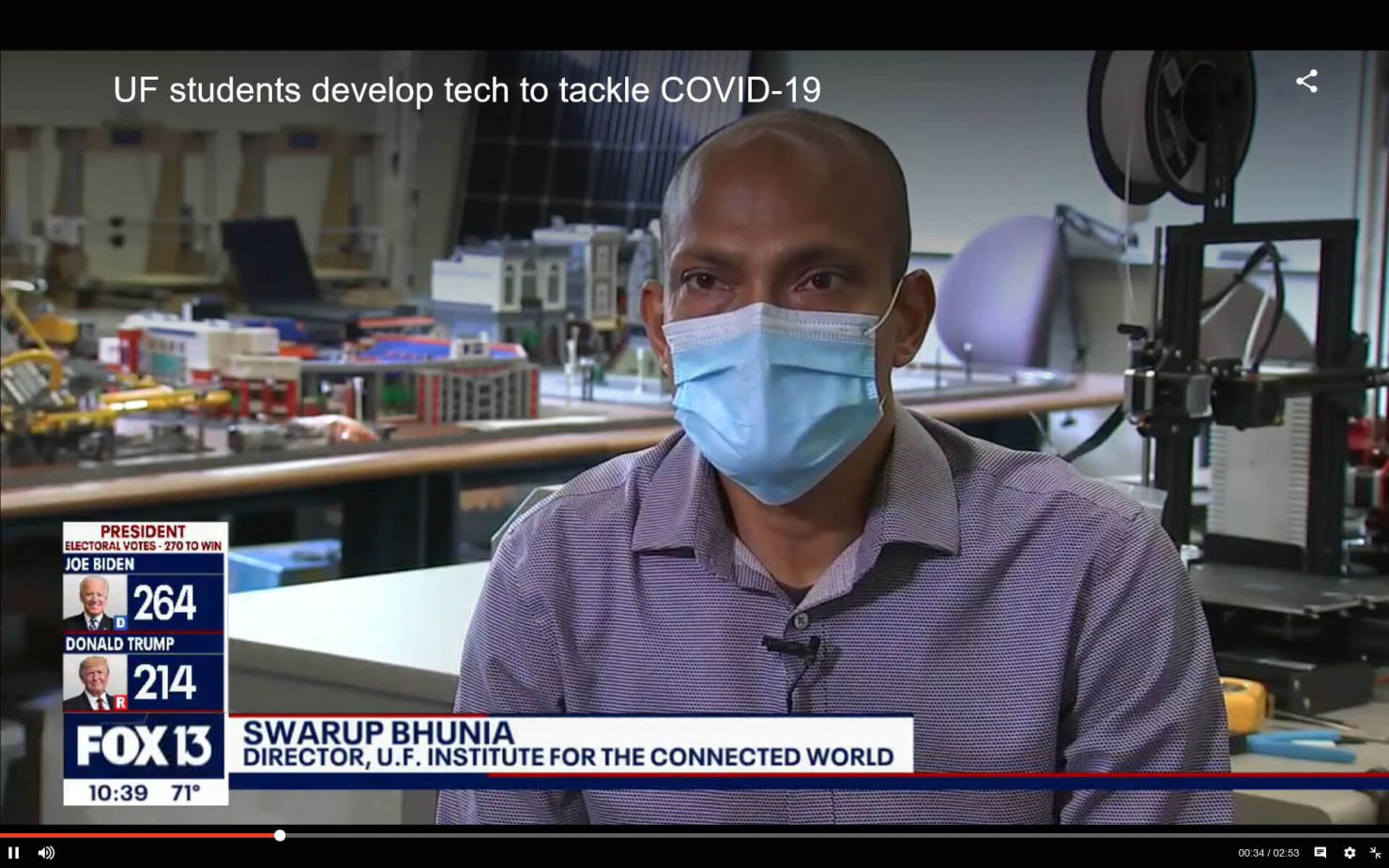Originally posted on the Fox 13 News website.

The ADAPT smart mask
GAINESVILLE, Fla. – When COVID-19 shut down the country in the spring, some of the brightest engineering minds at the University of Florida’s Warren B. Nelms Institute for the Connected World went to work.
“We felt an obligation to rise to the occasion and use our research expertise and creativity,” says institute director, Swarup Bhunia.
It was a call to arms, of sorts, urging staff and students to invent wearable, smart, connected devices to fight this virus and future ones.
“These devices can help monitor, detect, and mitigate the spread of the disease,” says Bhunia.
The first device is called ADAPT smart mask. A sensor in the mask detects particles the size of coronavirus droplets.
It releases water mist that not only blows virus-laden droplets away but clings to the airborne virus, causing the particles to fall to the ground.
“We wanted to come up with an active device that not only prevents us from being infected but also it effectively goes after the virus,” says Bhunia.

The RiskBand
The second device, RiskBand, tackles two major issues with virus containment: social distancing and contact tracing. The connected wearable devices would alert students with a signal light and light vibration if they were too near each other.
And by tracking that information, contact tracing could happen in minutes, not days.

The TRIDENT smart band
The TRIDENT smart band aims to catch temperature spikes that are frequent, early indicators of coronavirus. These are often missed due to infrequent temperature checks. TRIDENT monitors temperature on the radial artery. Using an app, it alerts users of potential infections so they can get tested.
“I think it’s going to be most useful for schools or employers who want to ensure there is a low risk of their students or employers having the disease,” says inventor and associate professor Soumyajit Mandal.
Right now, all of these devices are prototypes. The inventors believe when all three devices hit the market, they’ll come at an affordable price point.
“They have significant promise to become viable products and help the community in a big way and bring back normalcy in a big way,” says Bhunia.
